Britannia Nutrition Foundation (BNF) is working diligently towards its vision of a malnutrition-free India, with a strong focus on addressing the critical issue of affordable, healthy diets in underprivileged communities. Since its inception, BNF has positively impacted over 200,000 beneficiaries across 450 villages and slums in eight states by offering comprehensive programs to manage undernutrition and iron deficiency anemia among children, adolescents, and expectant/new mothers.
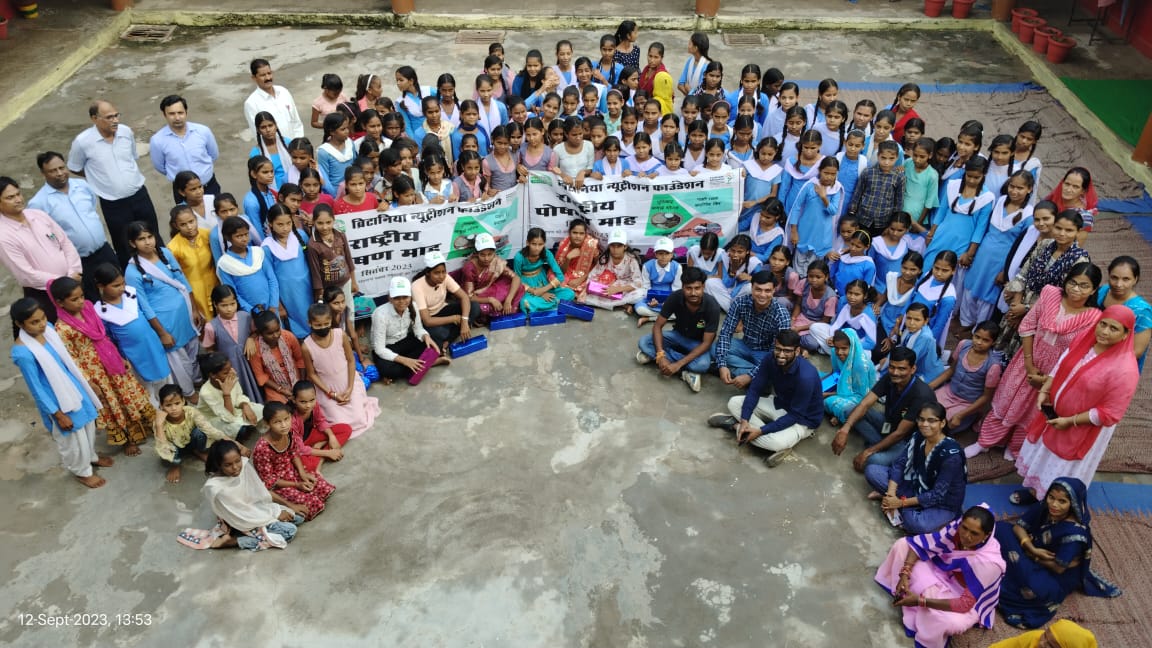
In an insightful interview with Mr. Rajneet Kohli, CEO, Britannia Industries Limited, we delve into BNF's inclusive approach for tackling malnutrition. The conversation covers BNF's focus on community empowerment, targeted interventions for different age groups, and successful long-term impact strategies. Mr. Kohli also discusses BNF's innovative methods, such as behaviour change and community engagement, which are central to its lasting impact. He highlights BNF's commitment to empowering women and young girls as Change Agents in their communities. Furthermore, Mr. Kohli outlines the foundation's plans for future collaborations and its dedication to sustainable change.
For more details, read the full interview below.
Q&A
Q. Considering Britannia Nutrition Foundation's vision of a "malnutrition-free India," and given the FAO's report highlighting affordability as a major hurdle, how does BNF address this challenge within its initiatives?
A. Britannia Nutrition Foundation BNF works extensively with the district and block level authorities, Anganwadi and health workers and in collaboration with ICDS, health, education, and Krishi Vigyan Kendra. We largely work on Direct Implementation model, where BNF implements & monitors the programme at the field. In two specific locations, the program is implemented through NGO partners.
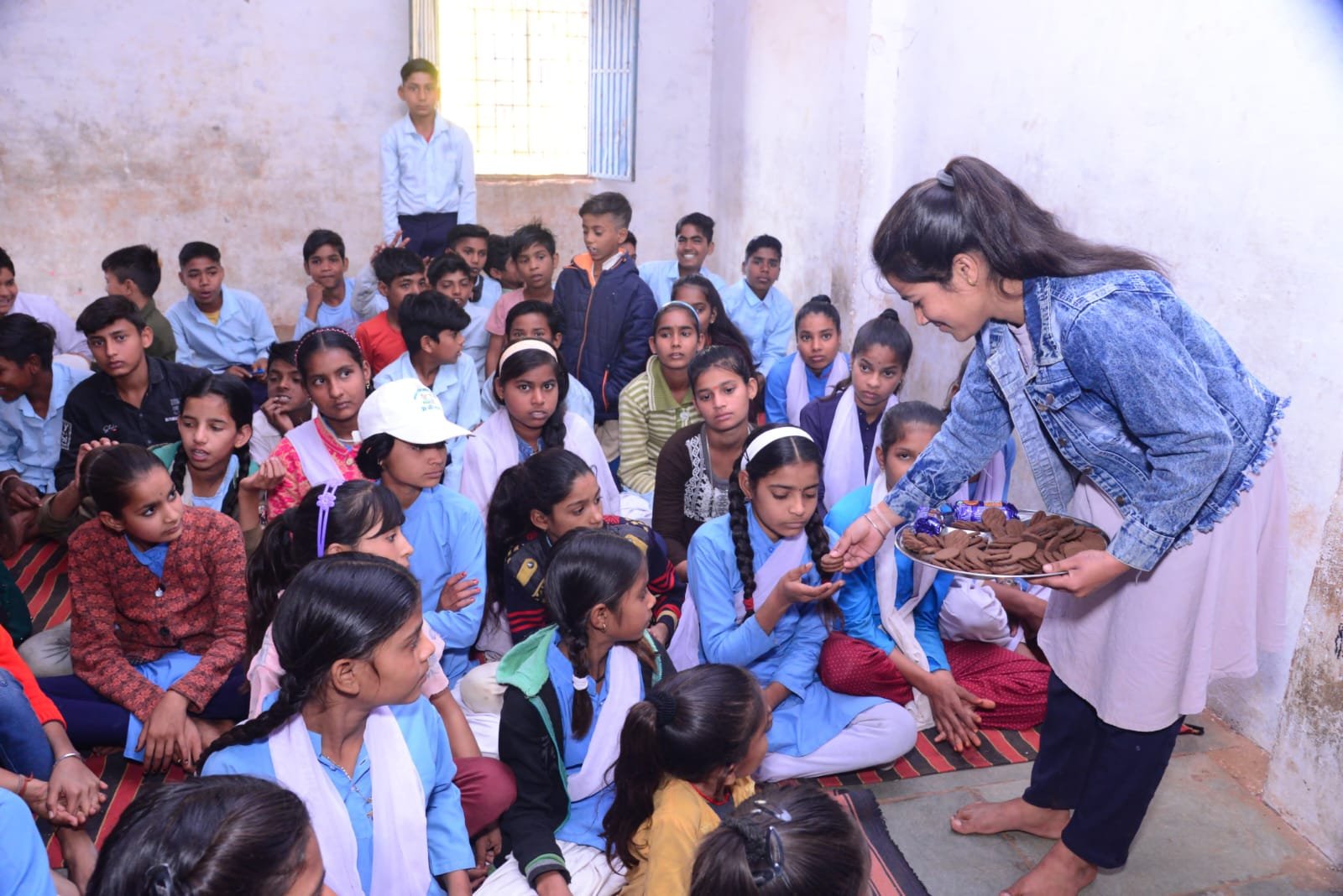 Nutrition:
Nutrition:
- General Health check-up camps for the beneficiaries residing across BNF intervention villages.
- Distribution of saplings & seeds to support the development of Nutrition Gardens.
- Raising awareness for parents of children with Severe acute malnutrition/Mild acute malnutrition and to help them understand the importance of nutrient rich meals.
- Community based growth monitoring for children.
- For SAM/MAM children providing nutrition support & referring to nutrition rehabilitation center.
Water provisions:
- Clean & Safe drinking water facility in Schools/PHC/ Anganwadi Centre
- Repair and refurbishment of water bodies and construction of water storage infrastructure.
Sanitation & Hygiene:
- Awareness Sessions on health, hygiene, and locally available nutritious food for pregnant, lactating mothers and adolescents
- Awareness Sessions for adolescent girls in Aanganwadi on issues of anemia & hygiene during menstrual cycle in Schools
Q. Could you elaborate on BNF's approach to empowering communities, particularly women, to ensure long-term sustainability in tackling malnutrition?
A. BNF approach is gender focused. The BNF intervention platform gives opportunity to women and the young girls to become aware of their health rights and exercise their peer & community influencing skills as Change Agent. In the project, women folks get the platform to become Suposhan Sakhis, where they counsel and raise awareness in the community on the issue of Malnutrition and better childcare practices. The position is voluntary in nature, without any financial benefits to them. Similarly, in the young adolescent group, we have Nutrition Champions, who are peer influencers in their schools and community, who raise awareness about the issue of Anemia and healthy dietary practices. This position is also voluntary, Suposhan Sakhi and Nutrition Champion as community change agents ensure long-term sustainable resources in the community in the dissemination of knowledge and, creating awareness.
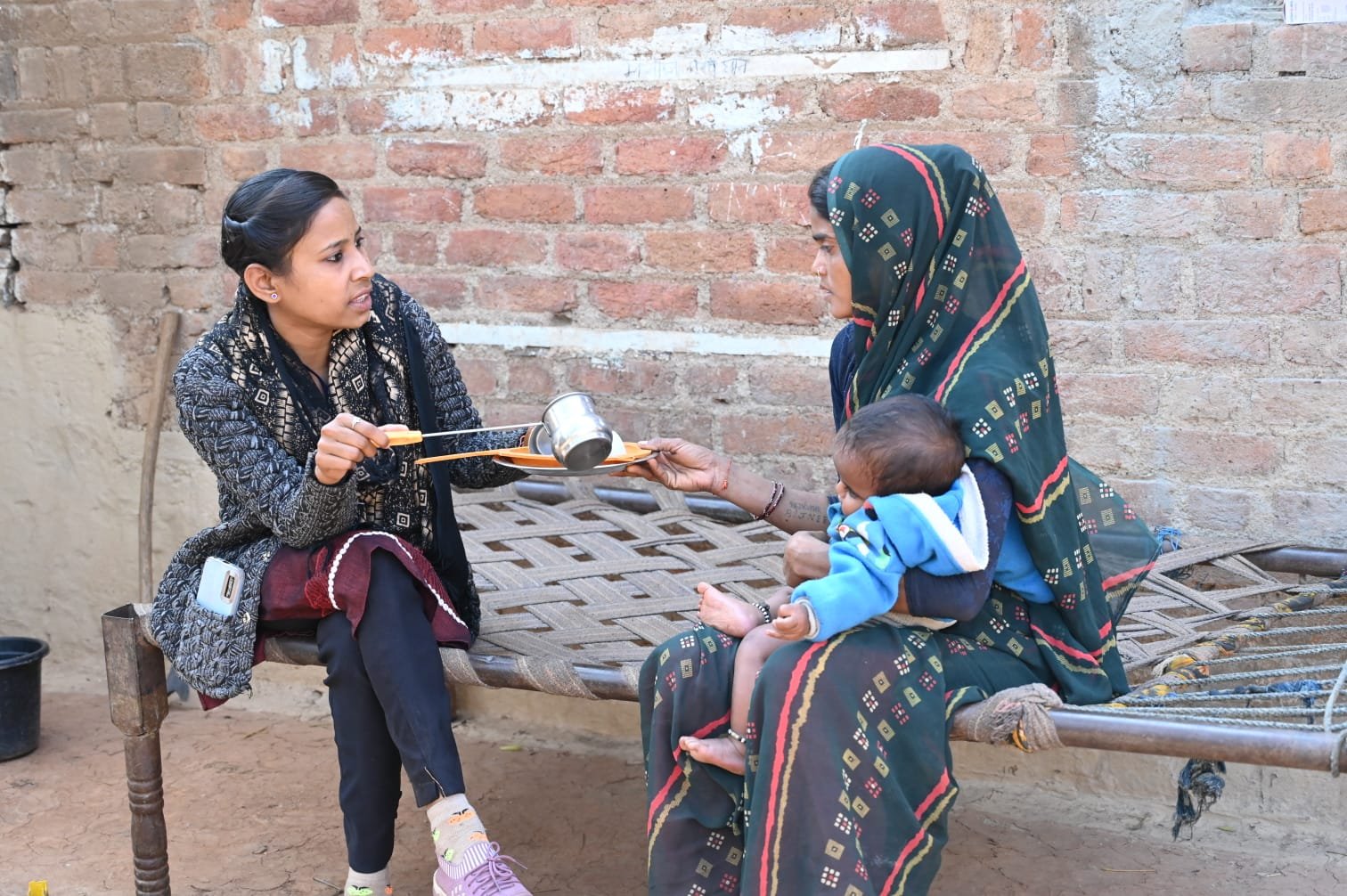 Q. Beyond the impressive reach of 200,000 beneficiaries, how does BNF's work aim to break the intergenerational cycle of malnutrition and create lasting impact on individuals and communities?
Q. Beyond the impressive reach of 200,000 beneficiaries, how does BNF's work aim to break the intergenerational cycle of malnutrition and create lasting impact on individuals and communities?
A. Britannia Nutrition Foundation is breaking the intergenerational cycle of malnutrition by imparting awareness, education, and through the provision of locally sourced resources to address the issue of Severe Acute Malnutrition (SAM) and Moderate Acute Malnutrition (MAM).
We have a life cycle approach to address malnutrition; we intervene early in the life stage starting from the age of adolescence when a young girl is imparted the right knowledge and information on issues of anaemia and Nutrition. This knowledge helps prepare her to enter healthy adulthood and pregnancy. As she enters the stages of motherhood, BNF imparts knowledge and skills on the right childcare practices and child nutrition, which equips her to better take care of the child, keeping them malnutrition free.
Q. While the number of beneficiaries served is commendable, could you share insights into the qualitative impact of BNF's programs on the lives and well-being of individuals?
A. Case Study 1: Shivani Adivasi - A Tale of Triumph over Malnutrition
In the modest dwellings of Maanpur, Shivpuri, M.P., the young Shivani Adivasi began a life marked by immediate adversity. Daughter to Morpal and Kranti Adivasi, both daily wage laborers. Noticed on May 12, 2023, at a fragile age of two, Shivani weighed barely 4.9 kg and measured only 65 cm in height. Her nutritional status was classified as Severe Acute Malnutrition (SAM).
Intervention amidst Resistance: The family's reluctance to support Shivani's recovery was rooted in deep-seated gender preferences. They could not justify the potential wage loss and the absence of Kranti from home, especially as she was pregnant, possibly with a boy. Kranti was torn between her duty to Shivani and the societal pressure to prioritize the unborn child, who may be a son. The family's nomadic lifestyle and Shivani’s additional health issues added layers to the already complex situation.
Despite these hurdles: 1. Referral to Nutrition Rehabilitation Center (NRC): With persuasion, Shivani was eventually taken to NRC, overcoming the initial resistance due to her mother's condition and caregiving duties.
2. Enhanced Nutrition Support (EDNS): Shivani was provided with steady nutritional supplements, a crucial step in her health restoration.
3. Supervised Feeding and Dietary/Medical Counselling: Through careful monitoring, Shivani received adequate nutrition and healthcare guidance.
4. Kitchen Garden Initiative: A garden at home was developed to ensure a lasting supply of fresh produce, aiding in Shivani's and the family's nutrition.
5. Vitamins and Local Health Services: Multivitamins and the support of the local Anganwadi Centre were instrumental in her recovery.
Victory over Prejudice and Poor Health: By December 21, 2023, the narrative had shifted remarkably. Shivani's weight rose to a robust 7.1 kg, and her height reached 69 cm. She moved from the SAM to normal health status, a testament not just too medical intervention but also to a community slowly recognizing the value of its daughters.
Case Study 2: Diksha's Journey to Wellness - Overcoming Congenital Heart Disease
In one of the transit camps of Rudrapur, U.K. lived a young girl named Diksha, born to Ramakant and Sonam, a family of daily wage laborers. During a routine household visit by the BNF team, it was observed that Diksha appeared weak and had difficulty breathing. Suspecting a medical complication, the area coordinator advised taking Diksha to DEIC for further examination.
Medical Diagnosis and Intervention: At DEIC, pediatricians conducted an ECG and other tests on Diksha, diagnosing her with congenital heart disease. This revelation marked a disappointment among parents, they anticipated huge costs, that too for a girl child. However, after consistent, counselling, The BNF team managed to convince the family and coordinated with DEIC staff, facilitating a referral to a specialized medical facility - Shri Satyam Sanjeevani International Center for Child Heart Care & Research in Haryana.
Surgery and Recovery Surgery: After regular follow-ups, Diksha’s surgery was scheduled in June 2023. The surgery was successful, marking a turning point in her life. Thanks to the collaborative efforts of the DEIC staff, BNF team, and the medical experts at Shri Satyam Sanjeevani International Center, Diksha overcame a life-threatening condition.
Current Status and Parental Feedback: As of the last visit and monitoring, Diksha's health had improved significantly. She now weighs 13 kg and stands 95 cm tall, maintaining her normal nutritional status. Her mother, Sonam, expressed profound gratitude towards the BNF for their support in ensuring Diksha's successful surgery and recovery, all free of cost.
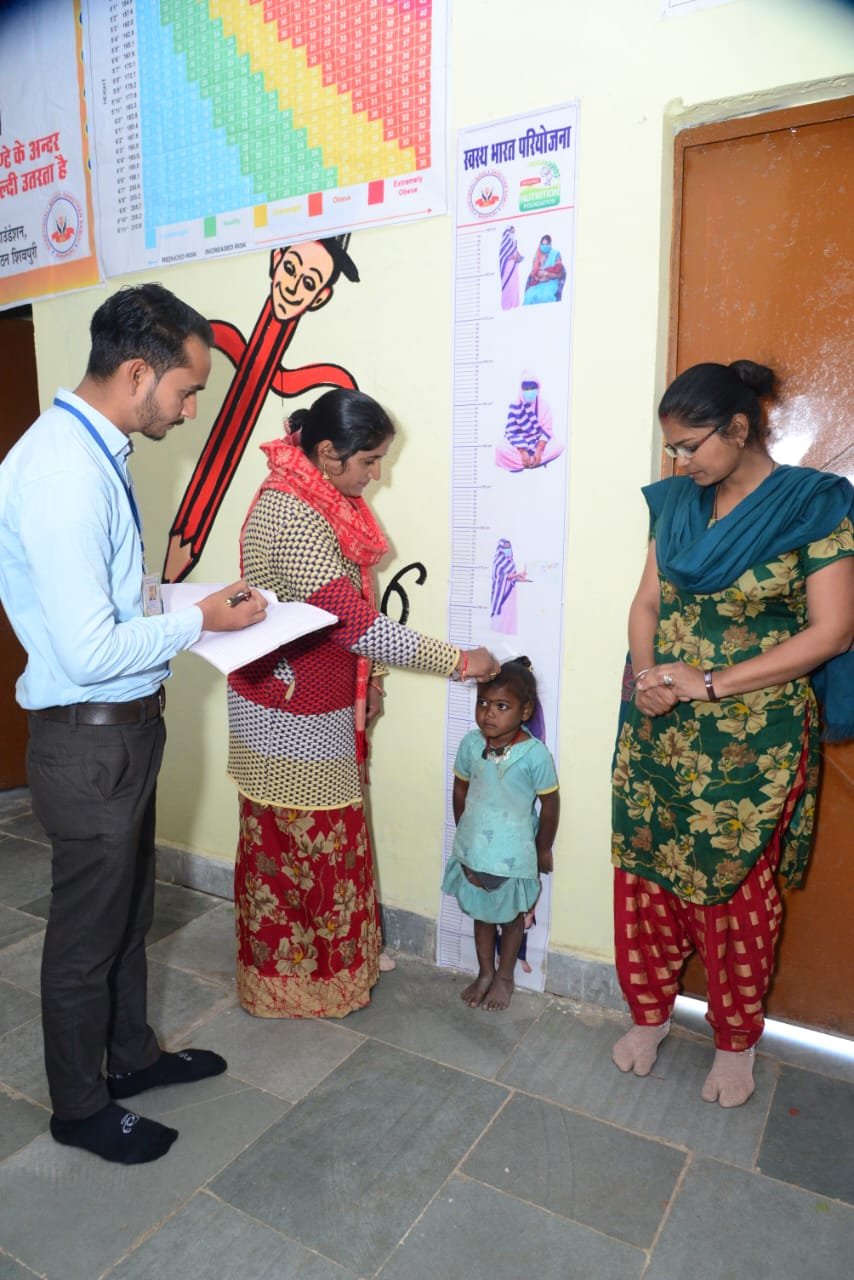 Q. Can you elaborate on how BNF customize it interventions for distinct age groups, like newborns, pregnant women, and adolescents? Sharing success stories that illustrate the impact on these beneficiaries would be particularly insightful.
Q. Can you elaborate on how BNF customize it interventions for distinct age groups, like newborns, pregnant women, and adolescents? Sharing success stories that illustrate the impact on these beneficiaries would be particularly insightful.
A. Britannia Nutrition Foundation is working with various age groups to address Malnutrition:
- Awareness on Healthy pregnancy & anemia is given to Pregnant and lactating mothers through one-on-one & group counselling.
- Newborns and under 5 years old are supported through the Suposhan Sakhis and volunteers who are a part of the communities and keep a check on the child's growth through regular visits, as well as keeping the parents informed about the right and required nutrient to stay healthy & disease free.
- Nutrition Champions, who are student volunteers between the age of 9-19 years, are trained and educated by BNF about well - balanced and nutrient – rich meals, which they further extend to their peers aged 6-19 years.
Q. Does BNF explore innovative approaches beyond food fortification, such as behavior change, education, or community engagement, to achieve its goals?
A. BNF uses a structured methodology to ensure our interventions deliver optimal and long-lasting impact to drive positive social transformation through a four-stage approach to address malnutrition in the communities.
Detect: The steps include screening of children with Severe Acute Malnutrition (SAM) and Moderate Acute Malnutrition (MAM), screening adolescents with low Body Mass Index (BMI) and anemia, as well as screening of pregnant women with low BMI and anemic.
Treat: Followed by referral of children suffering with SAM to nutrition rehabilitation centers, providing nutrition support, iron biscuits, hygiene & water kits as well as setting up nutrition gardens. BNF also regularly measures growth.
Sustain: Building & strengthening the ecosystem with improved awareness of entitlements and delivery of health & nutrition services.
Prevent: Sensitizing children, adolescents, mothers, caregivers & community towards health, hygiene & nutrition practices.
Q. To broaden its reach and amplify its impact, what are BNF's future plans for collaboration with various stakeholders? Please discuss any existing successful partnerships.
A. We work with Convergence under NUHM and Integrated Child Development Services to ensure quality services and quick delivery to anyone in need, hence ensuring seamless accessibility through an efficient team of frontline workers. We strive to work towards supporting the existing government infrastructure to reach its full coverage and ensure last-mile connectivity to hard-to-reach pockets. Our programme is more rural-focused, where we strive to ensure resources are not constrained in addressing the issues of malnutrition and anemia.
Q. Given the complex and multifaceted nature of malnutrition, how does BNF measure success beyond quantitative metrics to ensure long-term sustainability of its programs?
A. BNF programme outcomes look beyond the KPI and outputs. We are committed to changing practices and behavior at the community, household, and individual levels and making them free from the intergenerational cycle of Malnutrition. We also strive towards championing the cause of Gender and Women Empowerment, where our BNF platform helps them to come out of the confines of traditional roles and adopt the role of Change Agents, thus positively changing generations of girls and women to be aware of Health Rights and self-development. The effect of our intervention is not limited to numbers rather it’s a life-changing situations of self-awareness and growth.




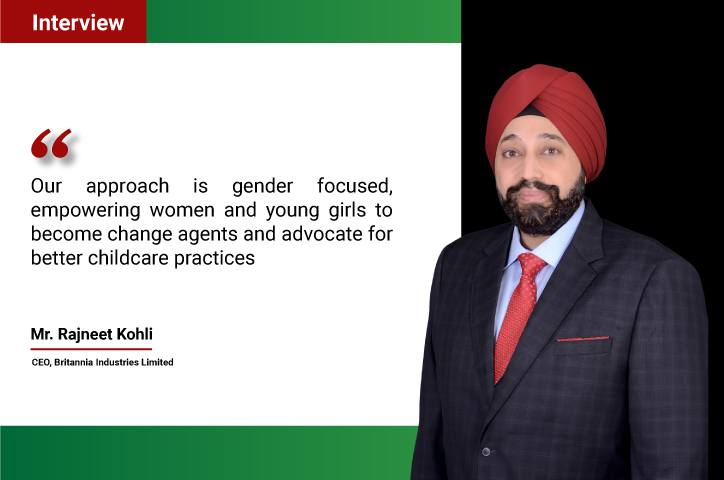

 Nutrition:
Nutrition: Q. Beyond the impressive reach of 200,000 beneficiaries, how does BNF's work aim to break the intergenerational cycle of malnutrition and create lasting impact on individuals and communities?
Q. Beyond the impressive reach of 200,000 beneficiaries, how does BNF's work aim to break the intergenerational cycle of malnutrition and create lasting impact on individuals and communities? Q. Can you elaborate on how BNF customize it interventions for distinct age groups, like newborns, pregnant women, and adolescents? Sharing success stories that illustrate the impact on these beneficiaries would be particularly insightful.
Q. Can you elaborate on how BNF customize it interventions for distinct age groups, like newborns, pregnant women, and adolescents? Sharing success stories that illustrate the impact on these beneficiaries would be particularly insightful.












.jpg)



